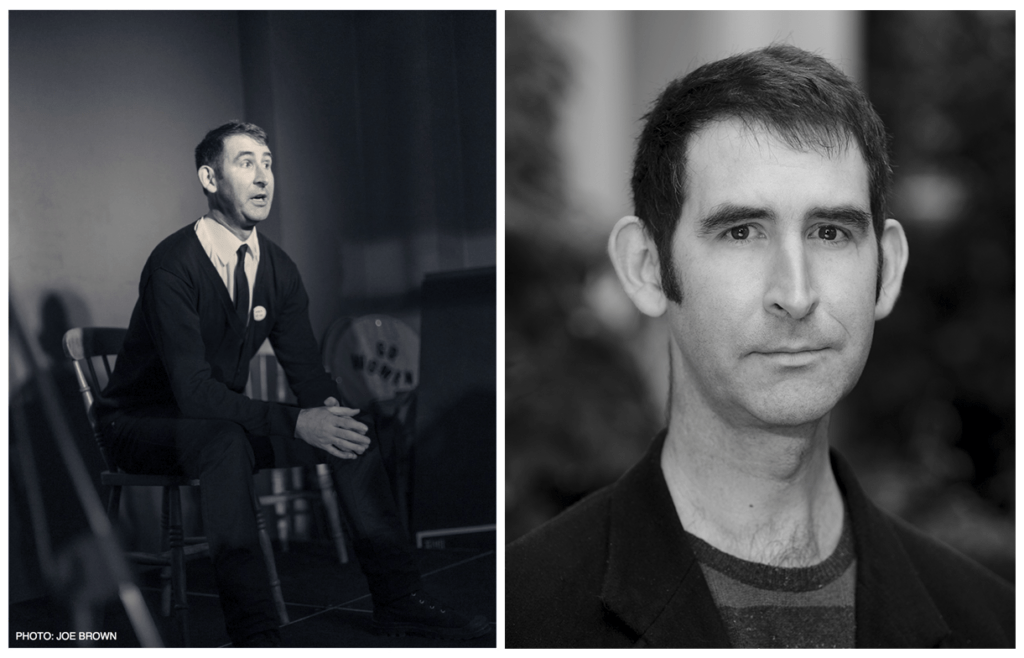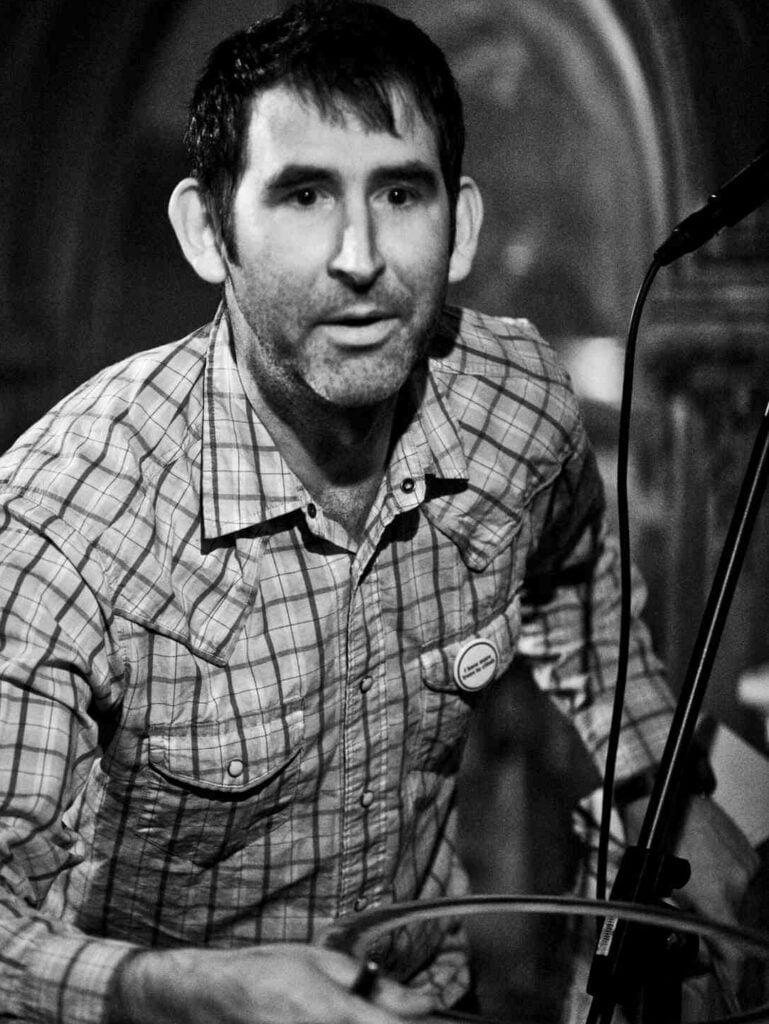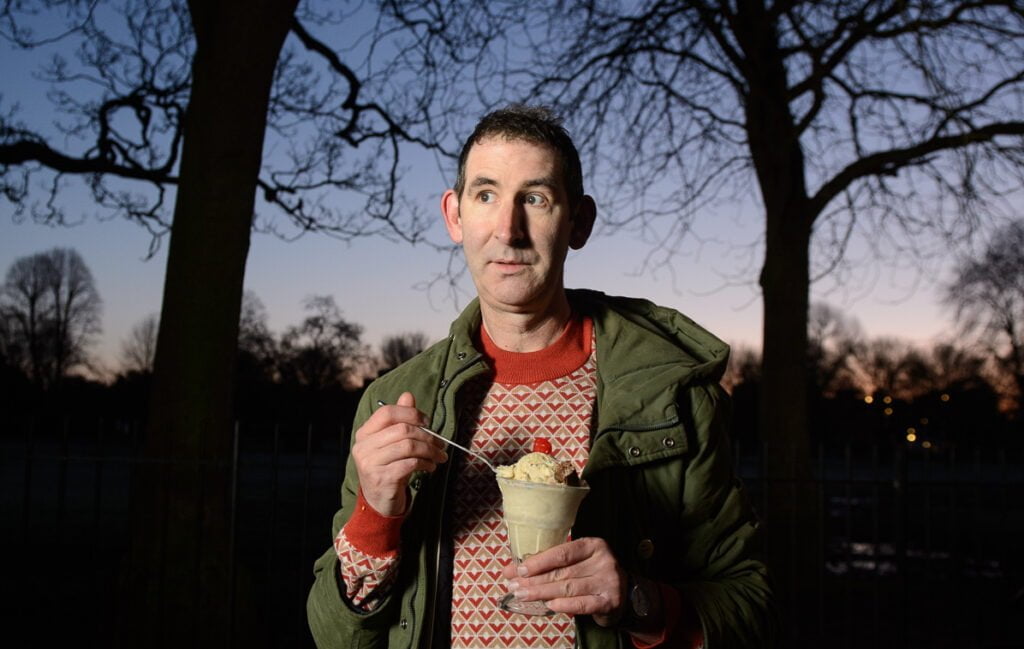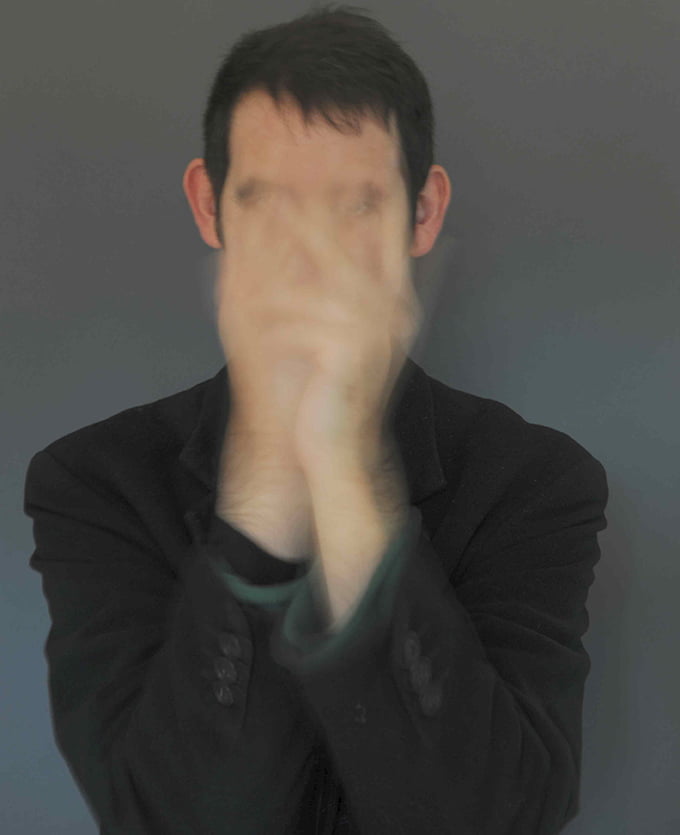Time to read: 8 minutes
Today we introduce you to writer and comedian, actor, radio producer, and all-round creative Ben Moor. Over 3 decades Ben has built a successful career over numerous appearances in tv and film, radio, and theatre plays as well as solo shows and many other creative ventures. We are very excited to welcome Ben Moor at Discovia with his new performance Who Here’s Lost?, a dreamlike comedy concerning roadtrips, families, and ice cream.
Describe what you do in your own words? What is unique about the way you do it that makes you stand out?
I am a writer and actor. I sometimes appear on TV and film (projects like The Queen’s Gambit, The IT Crowd, A Monster Calls, and Casanova) and I have written for BBC Radio, The Guardian, The Idler, and many other outlets. My solo stage work involves comic storytelling in a world just off to one side of our own. My pieces tend to be slightly sci-fi but grounded in emotional and interior stories – they are often romantic, whimsical, and strange, but because the feelings are real, I hope audiences connect the weirdness with universal truths about life and humanness. I work with a composer who creates a score to add to the storytelling, and often a lighting director who opens and closes up the stage space. I have performed my work in Italy (with subtitled translations) and all over the UK.

What inspired you to go and do it? How did it all start?
I have always been interested in the interaction between the fantastical and the real. From a childhood with my nose in encyclopedias and textbooks, and comics like 2000AD, to my studies in history and counterfactual history – I believe the terrain between what we know and what we can imagine is a fascinating landscape. I’ve always been inspired by artists who add surrealism to the mundane – David Lynch, Ken Campbell, Jonathan Carroll, and Leonora Carrington. After leaving university I performed for a while on the London comedy circuit and wrote topical sketches for Spitting Image and Radio 4’s Weekending, but I preferred to have my own toybox. So in 1993, I took my first solo show to the Edinburgh Fringe – it was a comedy whodunnit that brought in particle physics, the afterlife, toast, guilt, and lightbulb jokes. And since then I’ve developed my writing process and performance style – a mix of weird surrealism that takes a moment to grasp, and physical clowning that almost undercuts the text.
Describe a moment of huge inspiring breakthrough in your personal-professional evolution.
I think breakthroughs come when you’re not really looking for them. You aren’t always aware of the limitations around you until you push against them, and so when there is work to be done, it’s often within those boundaries. But when there is a time to stretch oneself, that’s when a breakthrough happens. For example, in 1995 I took a Greyhound bus journey around the western USA and Canada, not looking for anything, but knowing I needed to recharge, and a line came to me while on a bus and it showed me a new direction I could take. The idea was simply this: Bonsagami – the Japanese art of folding small plants. All it is is an image, a portmanteau word and concept, but it opened up a new avenue for what would follow in my later shows – a start on a way to explore a different region of my art.

What is your current Mount Everest?
What are you in the process of creating in the world?
Your ultimate vision and dream?
My Mount Everests tend to be low rolling hills which I can climb, observe the view from, and maybe return to without too much effort. I don’t have an ultimate vision and dream, but it’s lovely to share the work that I find interesting and sparks my imagination, and if it does the same with a reader, listener, or audience member, that’s wonderful.
I would love to return to the world of Undone, my radio series made between 2006 and 2009 – it often gets repeated on the BBC and I am delighted to get emails from listeners who have responded to its gentle surrealism.
What do iDiscover and its community mean to you?
I’m looking forward to hearing some inspiring speakers and absorbing the creative vibe of the weekend – and what a beautiful venue! It feels like there might be a lot of moments of collaboration triggered by getting so many imaginative and inspiring people together. Who knows what ideas will spark and what new maps will be found and what new islands of delight we’ll discover together?
What is your daily/weekly/monthly ritual or performance hack that really works for you?
I have a short mantra that I say to myself before going on stage. It came from the coach of the Buffalo Bills NFL team in the 1980s and 1990s, Marv Levy. He would tell his players before taking the field: Where else would you rather be, than right here, right now. It centres me and creates the moment for the performance – a stage show happens at a particular time, in a particular place, in a particular circumstance, with particular people – that’s why they are so special.
Best travel tip or secret location to share with us?
In the photo album of my memory, a golden moment I return to was during the filming of Casanova in Venice in 2004. We had been up all night shooting a night-time chase scene and I was in a water taxi returning to the hotel and I saw the dawn. It’s a wonderful place to be at any time – it’s like wedding cake for every meal – but a silent hour, crisp air, water, sky, and the start of a new day – very special.
What is your favourite quote or a question you want to leave us with?
In my 2017 show Pronoun Trouble, I mention the following words from Mickey Rivers, a baseball player. It’s on the inside of my front door and so it’s the last thing I see before I go out into the world:
“Ain’t no sense in worrying about things you’ve got control over, ‘cause if you got control over them, ain’t no sense worrying. And there ain’t no sense worrying about things you got no control over, cause if you got no control over them, ain’t no sense in worrying about them.”
Keep up with the current work of Ben Moor.


